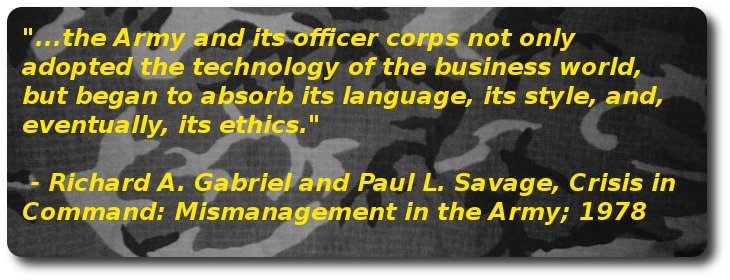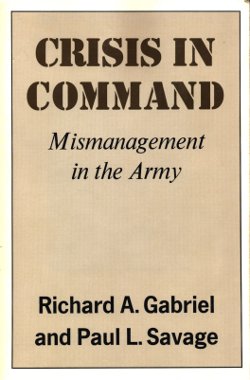Topic: Officers

Officer's Code of Honor
Crisis in Command: Mismanagement in the Army; Richard A. Gabriel and Paul L. Savage, 1978
 The nature of any command is a moral charge which places each officer at the center of ethical responsibility.
The nature of any command is a moral charge which places each officer at the center of ethical responsibility.
An officer's sense of moral integrity is at the center of his leadership effectiveness. The advancement of one's career is never justified at the expense of violating one's sense of honor.
Every officer holds a special position of moral trust and responsibility. No officer will ever violate that trust or avoid his responsibility for any of his actions regardless of the personal cost.
An officer's first loyalty is to the welfare of his command. He will never allow his men to be misused or abused in any way.
An officer will never require his men to endure hardships or suffer dangers to which he is unwilling to expose himself. Every officer must openly share the burden of risk and sacrifice to which his men are exposed.
An officer is first and foremost a leader of men. He must lead his men by example and personal actions. He cannot manage his command to effectiveness...they must be led; an officer must therefore set the standard for personal bravery and leadership.
An officer will never execute an order which he regards to be ethically wrong and he will report all such orders, policies, or actions to appropriate authorities.
No officer will willfully conceal any act of his superiors, subordinates, or peers that violates his sense of ethics.
No officer will punish, allow the punishment of, or in any way discriminate against a subordinate or peer for telling the truth about any matter.
All officers are responsible for the action of all their brother officers. The dishonorable acts of one officer diminish the corps; the action of the officer corps are only determine by the acts of its members and these actions must always be above reproach.

